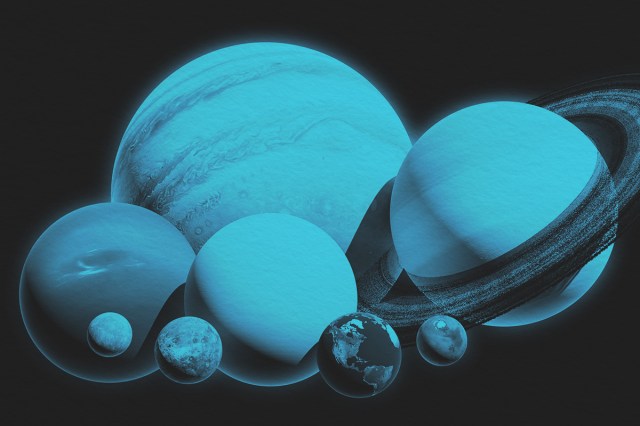
There are eight planets in our solar system — nine if you’re still clinging to those nostalgic memories of Pluto. For millennia, these planets were unnamed orbs floating around space. But once they were spotted by humans, the celestial bodies needed names. Depending on which language you speak, those names may slightly differ.
In most Western languages, planet names derive from Roman and Greek gods, with Earth being the only exception. Mercury, Venus, Mars, Jupiter, Saturn, and Neptune are based on Roman mythological figures, while Uranus is named after the Greek god of the heavens. Earth’s name comes from Old English and Germanic words for “ground” and “soil.”
All major Romance languages follow a similar naming mechanism. French uses Mercure, Vénus, Terre, Mars, Jupiter, Saturne, Uranus, and Neptune, while Portuguese uses Mercúrio, Vênus, Terra, Marte, Júpiter, Saturno, Urano, and Netuno. Major Germanic languages (German, Afrikaans, Swedish, and Dutch) also use similar variations. In Dutch, for example, the planets are named Mercurius, Venus, Aarde, Mars, Jupiter, Saturnus, Uranus, and Neptunus.
While North American Indigenous languages are geographically placed in the Western world, they’re not derived from the same sources. In Navajo, the word Nahasdzáán — meaning “our woman” — is used for Earth. The other planets in order are: Mókiwii (Mercury), Biinis (Venus), Máaz (Mars), Jíbitoo (Jupiter), Séetin (Saturn), Yoowéinis (Uranus), and Néʼtoon (Neptune). You might notice phonetic relations to the Western language terminology, but there’s no deliberate tie to the Greek and Roman gods.
In the Eastern Hemisphere, Chinese, Japanese, and Korean use names for the planets based on natural elements, other deities, or characteristics of the celestial bodies. (You’ll notice the symbols used to represent the words in Chinese and Japanese are the same.) To give a few examples:
Mercury: Water Star — Chinese: 水星 (Shuǐxīng); Japanese: 水星 (Suisei); Korean: 수성 (Suseong)
Earth: Ball of land — Chinese: 地球 (Dìqiú); Japanese: 地球 (Chikyū); Korean: / 지구 (Jigu)
Neptune: King of the Sea Star — Chinese: 海王星 (Hǎiwángxīng); Japanese: 海王星 (Kaiousei); Korean: 해왕성 (Haewangseong)
The naming conventions for celestial bodies across world languages demonstrates the shared connections between tongues. Whether the inspiration was drawn from the gods or the elements, the majesty of the planets generated names full of reverence.















